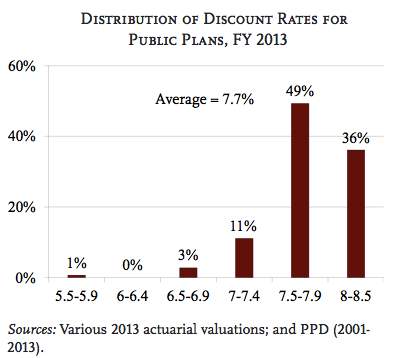
The Employee Relations Board, a five-member panel that handles labor complaints in Los Angeles’ City Hall, probably didn’t expect to become famous overnight.
But they’ve become a household name in Los Angeles this morning, after news broke that the Board voted to rescind a series of pension reforms passed by Los Angeles in 2012.
The Board ruled that city officials did not properly negotiate the reforms –which reduced pension benefits for new hires and raised retirement ages—with municipal employee unions. From the LA Times:
The Employee Relations Board voted unanimously Monday to order the City Council to rescind a 2012 law scaling back pension benefits for new employees of the Coalition of L.A. City Unions, on the grounds that the changes were not properly negotiated. That law, backed by Mayor Eric Garcetti when he was a councilman, was expected to cut retirement costs by up to $309 million over a decade, according to city analysts.
Ellen Greenstone, a lawyer for the labor coalition, described the vote as a “huge, big deal” — one that shows the city could not unilaterally impose changes in pension benefits on its workforce.
Coalition chairwoman Cheryl Parisi said in a statement that the reduction in benefits, which included a hike in the employee retirement age, “devalues middle-class city workers and their dedication to serving the residents of Los Angeles.
The city’s labor board is a quasi-judicial body that reviews complaints from unions, managers and individual employees. Under the city’s labor ordinance, the panel has the power to invalidate decisions by the council, said the board’s executive director, Robert Bergeson.
If council members do not agree with Monday’s decision, they can file legal paperwork seeking to have a judge overturn it, Bergeson said.
City officials have previously argued that changes in the retirement benefits of future employees do not need to be negotiated. The 2012 law rolling back benefits applied only to employees hired after July 1, 2013. Budget officials had hoped that the reductions would trim the city’s retirement costs by more than $4 billion over a 30-year period.
The board’s decision comes as the city’s contributions for civilian employee retirement costs have climbed from $260 million in 2005 to an estimated $410 million this year, according to a recent budget report.
Los Angeles, meanwhile, plans to appeal the board’s decision. From Bloomberg:
Los Angeles will appeal an administrative panel’s decision to roll back changes in public employee pensions that were expected to save as much as $4.3 billion over 30 years, a spokesman for Mayor Eric Garcetti said.
The second most-populous city’s Employee Relations Board concluded yesterday that officials failed to properly consult with municipal employee unions before pushing through the changes in a City Council vote in October 2012.
The city will appeal the board’s 5-0 vote in court, Jeff Millman, a spokesman for the mayor, said by e-mail. Millman said Garcetti, a 43-year-old Democrat, disagreed with the ruling, although Millman didn’t spell out the reasons.
Los Angeles was expecting to save between $3.9 and $4.3 billion over the next 30 years. If the city does indeed appeal the ruling, the reforms will then land in front of a judge, who will have the final say.
Photo: “LA Skyline Mountains2″ by Nserrano – Own work. Licensed under Creative Commons


